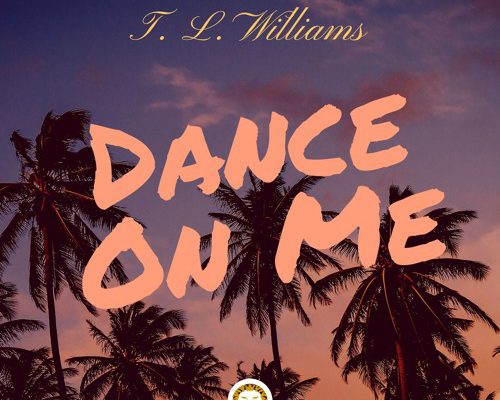“I know they ain’t gon’ play this on top 40 radio,” begins “Slow It Down”, IV Play’s confrontational first single. An indignant backlash against the wave of EDM-R&B that’s been sweeping the airwaves of the past few years, it’s a ballsy, against-the-grain move that highlights the identity crisis that Terius Nash seems to be undergoing. But in truth, the song’s dilemma applies to his entire career. While The-Dream has written some of the biggest hits of the past decade– ”Umbrella,” “Single Ladies”, lots more– his solo work has failed to take off. Instead, he’s developed a cult and has become a fixation of R&B nerds everywhere. Packed with guest stars, IV Play feels like it’s finally vying for that elusive spotlight. And, while he’s still not making those “motherfucking dance songs,” for the first time it feels like he’s trying to keep up with everyone else.
IV Play starts off shaky with “High Art”, an awkward attempt at a club anthem. Nash has never done this sort of machismo well; his charm lies in his ability to string sweetly sung hooks together, but he forgoes his established style repeatedly in IV Play’s first half. Always a fan of references, he takes a thesaurus to Ginuwine’s “Pony” for the bizarre and plodding “Equestrian”, while the less said about the tepid mess of “Turnt” (with Beyoncé and 2 Chainz, no less) the better. The only decent guest appearance is Pusha T’s on “Pussy”, which is ruined by Big Sean’s embarrassing appearance two minutes later. It’s the first time Nash has disappointed like this; he’s had a bum track or two, sure, but the early string of clunkers is discouraging.
Not that there aren’t gleams of brilliance. The title track is intriguingly out of character– “I could give a fuck about the foreplay/ I’m talking straight sex,” this coming from the man who once described messing up his girl’s hair like it was an elaborate courting ritual. But it falls into a despondent outro that edges on self-doubt. There’s been a string of self-loathing running through Nash’s music since his very public divorce (immortalized on 2011’s self-released 1977), which he can’t quite seem to shake. It’s there in the defensive “Slow It Down”, it’s there in the outro to “IV Play” (“I don’t deserve you”), and it’s there in another one of the LP’s most plaintive tracks, “New Orleans”. Like an outtake from 1977, the song’s subject (“this bitch”) is repeated at the end of every line, and while it’s undeniably affecting, the misogyny becomes grating.
Thankfully there’s at least one classic The-Dream track on IV Play– the effortlessly airy “Michael”. And, though more questionable lyrics abound (“He say he love you/ I just wanna fuck you/ Over the weekend”), it has all the lilt and masterful vocalisms of his best work. But this song is an exception. For an artist that’s modeled himself so closely after Prince, it’s striking how IV Play resembles the Purple One’s late 80s transition phase when the Minneapolis artist tried to re-engage his black fans by self-consciously urbanizing his music (see The Black Album). IV Play has many of the same restless impulses, from the surprisingly excellent blues slow-burner “Too Early” to the two-songs-stuck-together shambles of “Loving You/ Crazy.” The brilliant auteur we fell in love with is still in here somewhere. He’s just buried under layers of pretense.
IV Play winds down with the epic “Holy Love,” which references his “Umbrella” height of 2007 and hints at emptiness in the wake of success. Where exactly his ire is directed is unclear, but it makes explicit a frustration obvious to anyone who’s been watching his solo career since it started, through record label ordeals, delayed release dates and scrapped albums. “Always with you baby/I’ll never sell out,” he sings in a verse to “Slow It Down,” which begins to feel like a coded message to his longtime fans. Sticking with him through the machinations of the music industry has never been more difficult than it is now, but IV Play still has its rewards. When the world finally heeds the plea of “Slow It Down”, he might achieve immortality all over again. For now, though, he’s merely human.




